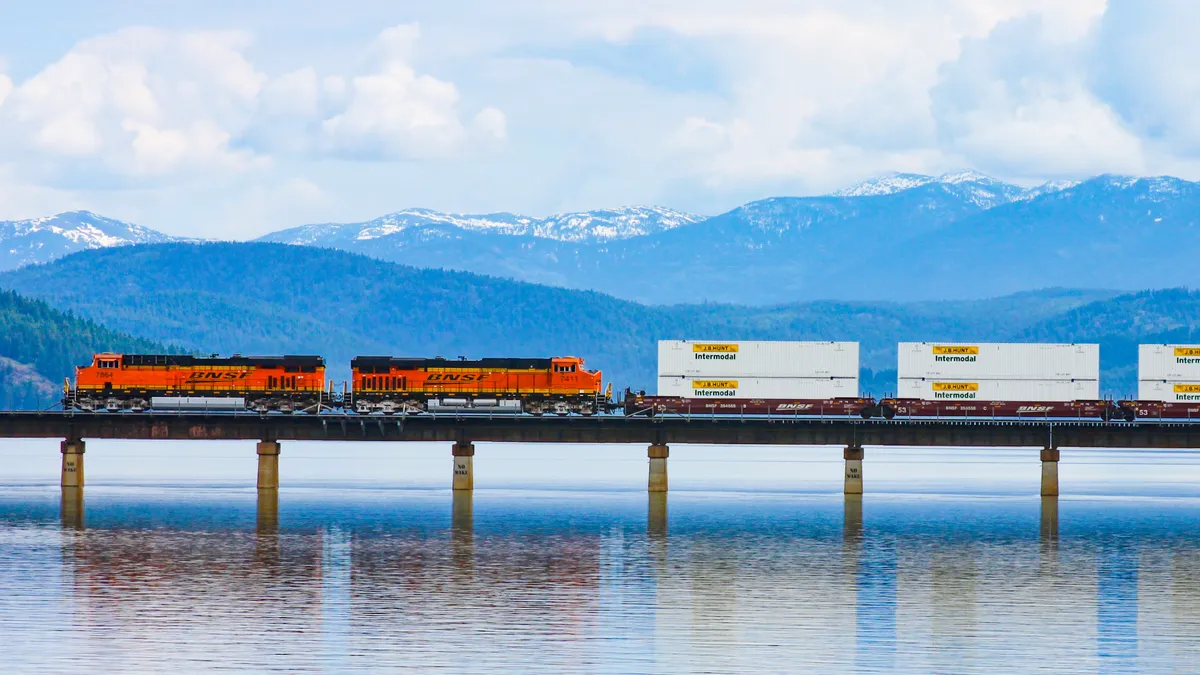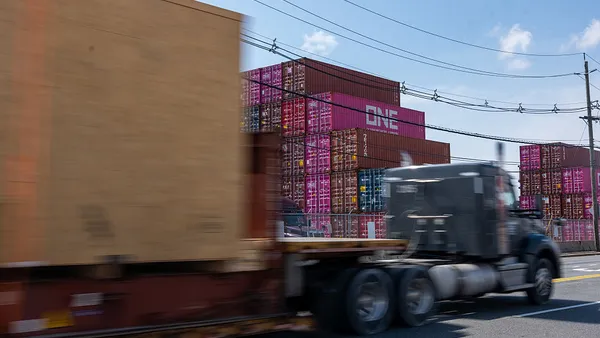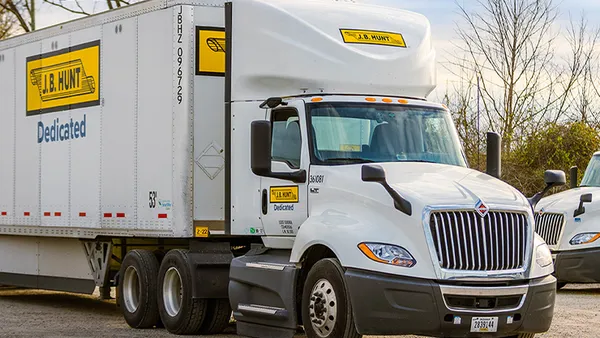Dive Brief:
- J.B. Hunt Transport Services reported Tuesday its largest business segment, intermodal, saw volumes grow by 1% year-over-year in Q3, marking the first upswing for the company in a year.
- While eastern network loads fell 3% YoY, transcontinental loads grew 4% during the quarter. The company said in a press release demand for intermodal services improved throughout the quarter thanks to "moderating destocking trends, seasonal activity, and strong performance from our rail providers."
- However, intermodal volume gains were overshadowed in the company's earnings call by an 18% drop in Q3 revenues. The company reported revenues of $3.16 billion, down from $3.84 billion a year earlier.
Dive Insight:
Higher volumes were not enough to offset intermodal revenue declines, which were down 15% YoY to $1.56 billion, driven by a 16% decrease in gross revenue per load, according to the company press release. Shifts in rates, fuel surcharges, and the company's mix of freight contributed to the per-load revenue declines.
Despite the sharp revenue decline, EVP and President of Intermodal Darren Field was encouraged by the intermodal volume lift, which he said was achieved through “taking market share with our strong service that is outperforming the competition.”
In an earnings call, Field said the company’s intermodal segment experienced a 1% volume gain in August and then saw a 4% increase in September, adding the company recorded its “largest intermodal volume week” that month compared to any other time in its history.
He added the volume gains were also supported by shippers’ desire to lower logistics costs as well as the fact that fewer shippers are seeking to lower their stock levels.
“One of the ways [shippers] can save money is convert their highway business back to intermodal,” he said. "And so we're gonna be very focused on our ability to grow there."
J.B. Hunt remains committed to growing its intermodal fleet to 150,000 containers over the next three to five years. At the end of September, the company had 117,387 containers, up from 113,066 compared to the same time a year earlier.
J.B. Hunt executives at a recent investors conference said they were monitoring how retailers were managing inventory, which influenced its equipment usage to protect margins.
The company had been parking unused containers in recent months, but during the earnings call, Field said the carrier has been pulling equipment out of storage.
“None of our equipment has gotten back into storage and demand remains really, really strong just as it was throughout September,” he said. Executives said repeatedly during the call they could not predict whether the freight market was turning around but wanted to be prepared for a comeback.













